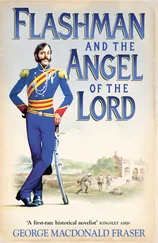It was difficult perhaps for her to perceive that her shortcomings were a necessary gauge of Mary’s womanhood, that the annunciation of humanity existed everywhere — if it existed at all — even in the deprivations of social and natural order. Her obsession with “the wall” was a way therefore of identifying sexual nightmare and racial, class-fixated, economic riddles. It was a way of identifying hardened inferiority complexes, hardened superiority complexes, dogmas of inequality. Equally it was a revelation of doomed lives, doomed graces or non-graces, on either side of the wall that needed to be re-interpreted as an epitaph of the imagination through which to resume a conception of universal, endangered cradle in imagination. However one dodged it, or faced it, it returned in eloquent fabrics and conflicting emotions of place or status, accents and grunts, terror and reality in the wake of the dying fall of an insidious music of bone and mind. It witnessed to a world of inner and outer mutes, a world in which what was said by the lips meant less than a tightening or opening of the lips, less than a gesture of the body, bite of the eye, tightening of the brow, shiver of the heart.
It was a wall she felt curiously vaguely, yet curiously vividly, she must herself have composed within layers and layers of self, and through which she must seek a door into what lay uncannily close at hand, uncannily far away, and beyond. In certain senses it was less a divide between herself and others and more the paradox of space that divided yet enclosed — enclosed yet released — its inmates and intimates forever. Forever was itself a crack, a flute, a trumpet, an echo of blood and sea, bone and ice, sky and flight, wheel within wheel shaping itself into gesture, radical gesture of hope.
The thought of seeking a job, of going out to work like Mary, led to a transference of obsessed wall from Mary and herself to structures and places around her. She found herself compulsively scanning the cards in the windows of shops and the advertisements in evening newspapers. She deciphered what seemed to her to be fictional secretarial jobs in the unemployment market. She gauged the pleasures of becoming a model. There was an opening advertised — a chance to travel she longed for heart and soul — but she didn’t have the money to pay, just over £500 to gain a place in a party that intended roughing it on expedition to South India and to the golden city of Mysore. Her eye was suddenly drawn to a paragraph requesting women characters (board, lodging, everything taken care of) for Proudhon Utopia in the Jura Mountains of Switzerland. “A Walk in the Paradise Garden”’s snow mountains. Who was Proudhon? She wondered. She glanced at the headlines of another newspaper. AMERICAN HOSTAGES HOME FOR CHRISTMAS? Unlikely fiction, Mary thought.
Her enclosed mind wandered round and round, back and forth, before returning to Proudhon Utopia and she decided to enquire at a public library in Goldhawk Road, a rather ancient and overcast series of rooms stacked with buried names in every wall and with Sukey Tawdrey magazines. In her fits of depression and hypnotic elation, the library loomed like a phantom, cracked bureau of the dead in which to stumble upon her own seeping hollow mind or brimming spirits, unreal statistics and characteristics, as upon the hidden, psychical bases and foundations of Father Marsden’s Angel Inn where Proudhon most probably resided in his fissured coffin waving across the city of London to Karl Marx of Highgate.
Ubiquitous coffin. “Forget it, if you wish, though it exists in your dreams. It may store your desires to forget (to be at peace) but will upbraid you nevertheless for every lie.” The lie of power lay in each coffin, the watch-towers and nuclear rockets, the minute hand of ambivalent fate, the judgement-day beastly machines that one unconsciously serves, profits from, creates each day though the strict burden or share of responsibility remains ceaselessly divisible in fictional and mental heights and depths. Each mental valley of responsibility, each precipice of blood, each divisible nail or truth of the stigmata, remains unpredictable capital consumption of Christ’s three loaves and Mary’s fishes displayed upon a stall in Shepherd’s Bush market. That stall multiplies into a million rooms and holiday feasts, a million spectres of the failed metamorphosis of famine, the sorrows of truth hand in hand with every greedy lie.
Stella consulted an attendant in the library who conducted her to an area of wall that may have come straight from Marsden’s Angel Inn table of books. She drew out Sir Thomas More’s Utopia, Joseph Proudhon’s What is Property? Property is Theft, William Morris’s News From Nowhere, Karl Marx’s Das Kapital and Reflections by Mahatma Gandhi. She culled notes about Joseph Proudhon that ran as follows:
In 1843 Engels wrote to Mary about Joseph’s What is Property? in the most favourable terms but in 1848 he and Karl classed Joseph as a “bourgeois or conservative socialist” akin to “economists, philanthropists, humanitarians, improvers of the condition of the working class, organizers of charity, members of the society for the prevention of cruelty to animals, temperance fanatics, hole-and-corner reformers of every kind”.
Stella paused to reflect on Engels’ communication to her centuries after she was born in an ancient land but a century and more before her birth in England. Then she continued:
This split or gulf between the guardians of infant truth or humanity’s welfare continues today between those who idolize a centralized leader or saviour of the people and those who incline towards a decentralized marriage of evolving communities. Karl and Joseph were married men and Joseph was to influence Mahatma and Tolstoy. Tolstoy forsook his immediate family to found a wider community or family in which his mysticism veered at times towards authoritarianism. Joseph Proudhon’s half-Gandhian, half-Tolstoyan ideas found a permanent home in the Jura Mountains of Switzerland. The emphasis still is on watch-making, on the minute hand of ambivalent fate exercised by virgins of state.
All this was unfamiliar terrain to Stella. She was no virgin of state and yet her desire to change the world was the foundation of Utopian marriage to god. It left her uncertain of the nature of god and god’s family — the nature of extreme vocation — until she cast her eye into another section of the wall where a display of models and books spoke of the quest for life and other civilizations in the universe. Pictures and models gestured at her from obsessed wall, like mutes of galactic space, Jupiter, Mars, Saturn, Uranus, and others far distant as if — for all the cosmos — Joseph Proudhon, Karl Marx, Mahatma Gandhi, William Morris, Mack the Knife, and others masked and secretive were cycling there in Anancy chariot whose wheels were the music of Asian plates, American plates, European plates, African plates within the earth’s landscapes and seas. Wheels within wheels of plates and continents in motion… The wall within which they cycled was human space, human controversy, and it differed from Jupiter’s oscillations and intensity of ice-ages. It was as if Jupiter’s paradisean virgin ice had become an epitaph; and thus — though life had never occurred on Jupiter to be buried and mourned — death had arrived there as extreme forerunner of the human imagination.
Mary arose from the covered bench in the St Paul’s schoolground. She had been sitting there attentive to an inner call as if turned to hypnotic stone — however enlivened human blood — for about ten minutes in the mild, misty atmosphere of Friday noon, mid-February 1981. Two months had elapsed since Stella’s visit to the Goldhawk library in mid-December 1980 and her (Mary’s) presence in mid-February 1981 in St Paul’s, Hammersmith.
Читать дальше












